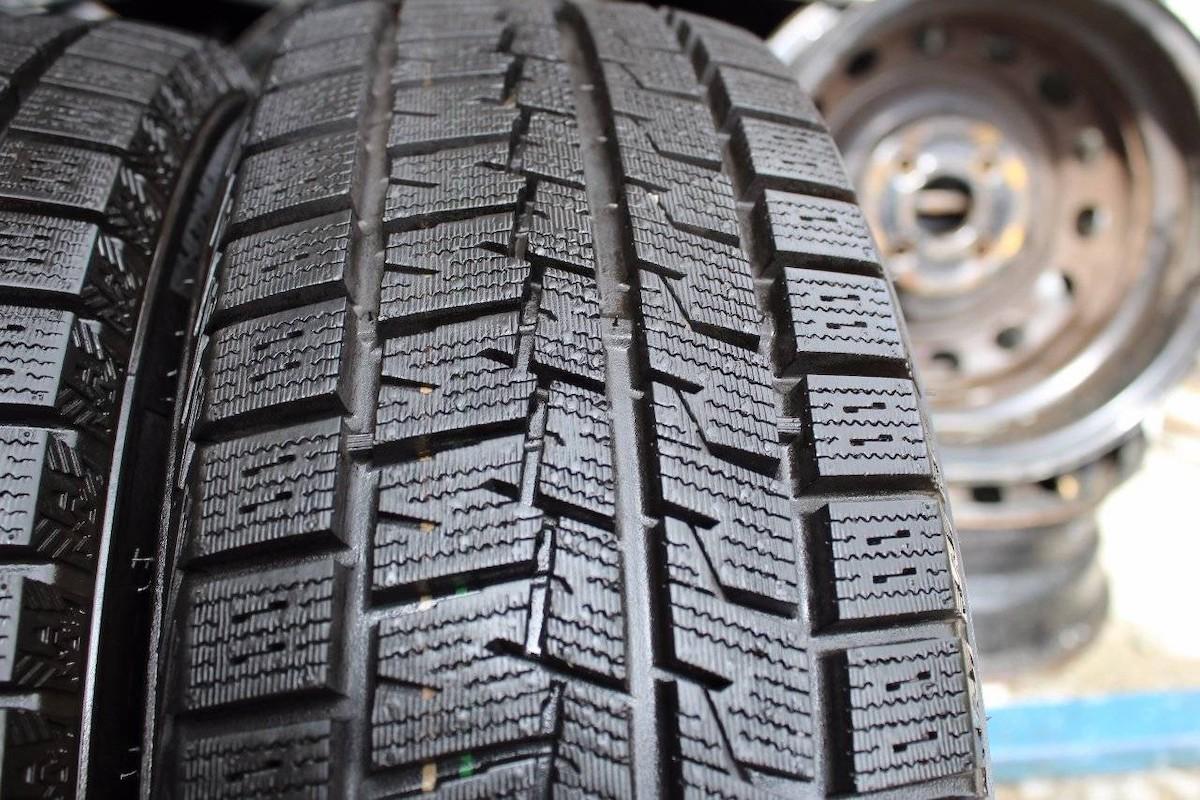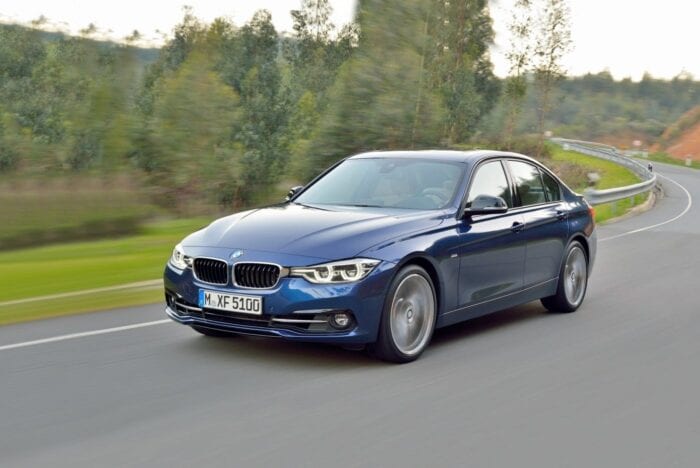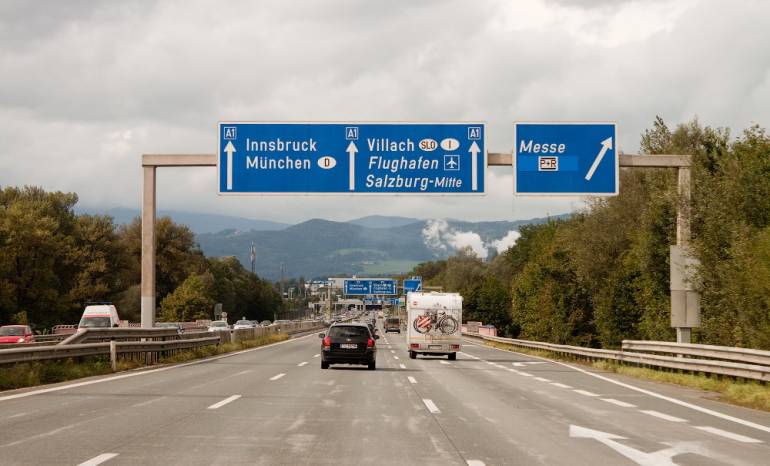
By car to Austria - everything you need to know in order not to be fined
Content
Austria is a very attractive travel destination, especially for lovers of winter madness. However, the beautiful location makes it famous for its dangerous mountain roads. Wrong walking on them, especially in winter, can cause trouble. Therefore, it is better to be well prepared for a trip to Austria - including in terms of knowing the rules!
What will you learn from this post?
- What documents are needed to travel to Austria?
- What is the toll on Austrian roads?
- What are the speed limits in Austria?
- What compulsory equipment do you need to have in a car in Austria?
- Are snow chains a must in winter in Austria?
Shortly speaking
The Austrian police are known for their strictness and... love to control tourists. Thus, speeding, failing to pay a vignette, or missing any of the required equipment – a triangle, a fire extinguisher, a first aid kit, or a reflective vest – can result in a heavy fine. However, for complying with the restrictive rules, you can get a well-deserved reward: a pleasant, pleasant and hassle-free journey. A high driving culture reigns on Austrian roads. It is worth adapting to this standard, and each subsequent kilometer of beautiful Austrian landscapes will certainly go smoothly.
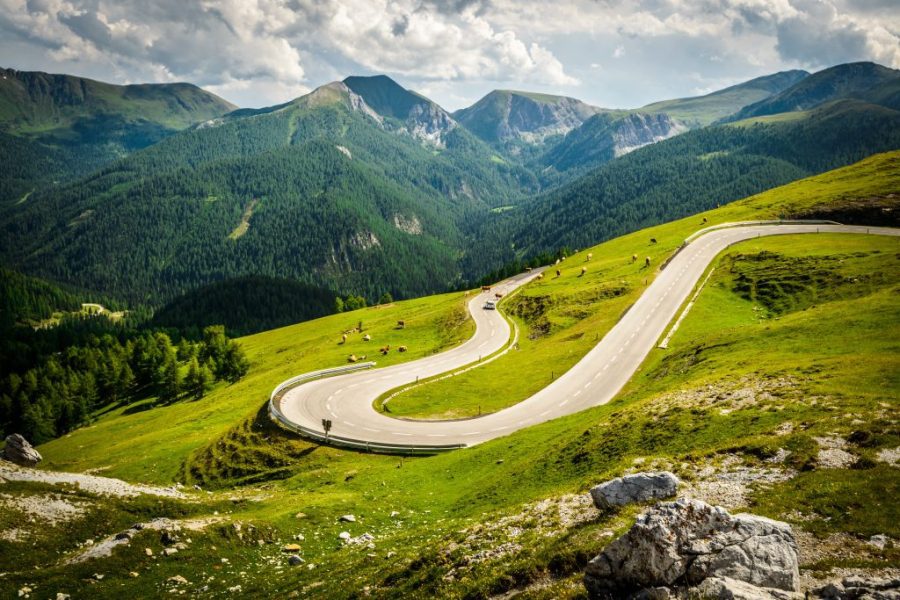
Way to Austria
Near the road from Poland to Austria. Depending on which country in Poland you are moving from and which region of Austria you are going to, you can choose to travel via Slovakia or the Czech Republic. The road through the Czech Republic is easier, and through Slovakia - more picturesque. The landscape of Slovakia is more like the mountain roads of Austria. Whichever route you choose, remember that Both countries charge tolls for motorways and expressways.... The electronic system operates in Slovakia, and in the Czech Republic vignettes can be purchased at numerous points located at border crossings and along the motorway network. Good news for fans of two-wheeled vehicles: in the Czech Republic, motorcycles are free of tolls.
Required documents
Entry into Austria as a country of the European Union and the Söngen zone does not require you to complete any complicated formalities. Just important ahead Identification (minimum 6 months) or passport (at least 3 months), driver's licenseAnd also registration certificate with valid technical inspection and liability insurance. It is worth acquiring additional health insurance and accident insurance, but this is not required by law and there are no penalties for their absence (at most, a high bill for possible treatment, which, of course, we do not wish for anyone.).
fees
In Austria, all motorways and expressways (including those located within the city) are paid. The driver is obliged to buy a vignette and stick it on the windshield of the car, at its top or left edge. The color of the vignette changes every year. In 2019, there are lemon-colored stickers.
There are alternatives to traditional resolutions electronic vignettes... When buying from an online store (for example, at asfinag.at or through the Unterwegs phone app), the driver must provide a registration number and thus assign a ticket to his car.
for cars up to 3,5 tons you can buy one-year (€ 89,20), two-month (€ 26,80) or ten-day (€ 9,20) vignettes. A similar choice exists in the case motorcycles, while the prices, obviously, are correspondingly lower (respectively: 35,50 / 14,50 / 5,30 euros). A separate system applies to buses and trucks - here tolls are calculated using a special device. Go Boxon the windshield. The device must be purchased from one of the retail outlets along the main road network or at any border crossing point and the vehicle must be registered. The amount of transportation costs will depend on the number of axles of the vehicle and the kilometers traveled.
Failure to have a valid vignette will result in a fine of EUR 120 (for motorcyclists EUR 65). The fee is immediately collected by the checking policemen. In case of refusal to pay the fee, a notice of the offense is sent to the court. As a result, the driver will have to pay up to 20 times the fine. It is worth knowing that the ticket also threatens the driver who did not stick, but only tucked the vignette behind the glass.
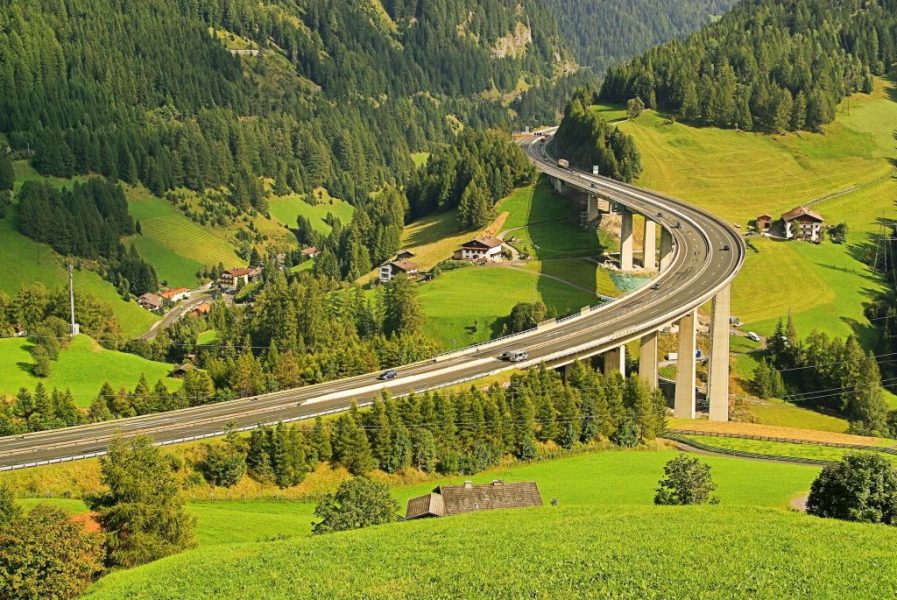
Speed limits
Speed limits are not much different from Polish ones. However, please note that The Austrian police are very strict in enforcing the regulationsand fines in euros ... hurt the wallet. Therefore, when traveling in Austria by car or motorcycle, do not allow yourself more on the counter than:
- 100 km / h on national roads,
- 130 km / h on the highway,
- 50 km / h in built-up areas (except Graz: here 30 km / h and 50 km / h on priority roads),
- 50 km / h on priority roads.
Other recipes
The consequences of non-compliance with traffic rules in Austria are not only serious fines. For each violation of the rules, foreigners receive the so-called yellow cards. Three such "decorations" lead to a ban on movement around the country for a period of at least 3 months. In addition, for each order issued, the police officer has the right to retain the driver's personal rights equal to the amount of the bail. Oh, such a pledge.
Alcohol
Austrians, although they strictly adhere to the rules, do not treat drunk driving as categorically as, for example, Slovaks. In Austria the permissible amount of alcohol in the driver's blood is 0.5 ppm. However, exceeding this limit entails a fine of 300 to 5900 euros, the need to undergo special training and even the revocation of the driver's license.
Escape alley
On Austrian highways, giving way to ambulances using the so-called escape alley, that is, creatures on moving cars internal transport corridor between lanes, this is the standard set by law. Failure to comply with this rule may result in a fine.
Winter travel
In Austria winter tires it is not a matter of convenience and safety, but of the law. The change obligation applies to drivers of all passenger cars, light vehicles with trailers and category B trucks. from November 1 to April 15... During this period, drivers of vehicles over 3,5 tonnes (such as campers, buses or coaches) must also have snow chains. For lighter vehicles this is not necessary - at least not on all Austrian roads. However, only chains that comply with O-Norm 5117 (for cars) and O-Norm 5119 (for trucks up to 3,5 tons) are allowed.

Necessary equipment
Don't forget to refill your equipment when traveling to Austria first aid kit Oraz yellow reflective vestwhich are strictly required by Austrian law. Also, do not forget to disassemble the camera on the dashboard, if you have one for every day - in the country of Susanna and chestnuts, the storage of such equipment is strictly prohibited.
Parking
If you are traveling in Austria by car, parking can be a problem. In Vienna and other major cities such as Salzburg, Linz or Klagenfurt, you can use blue zones... These are short-term stop zones: from 10 minutes to 3 hours. When leaving your car in the designated areas of the blue zone, you must buy a parking form and place it in a prominent place in the car. Parking fees range from 1 to 4 euros. An alternative are peripheral car parks where www.apcoa.at helps you find them.
When going on a winter vacation in the Alps, do not forget that in Austria it is forbidden to carry ski equipment in a car. The roof rack is a safe and convenient solution that easily fits your board, skis, poles and boots. When traveling with him, you just need to remember that the speed should not exceed 120 km / h.
Before driving, inspect the car, be sure to check the level of oil and other working fluids. On the website avtotachki.com you will find the necessary spare parts and auto chemistry. Then go! We wish you a pleasant experience!
avtotachki.com
